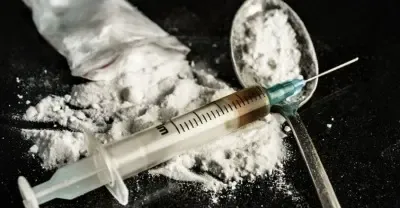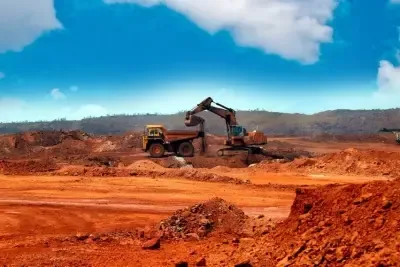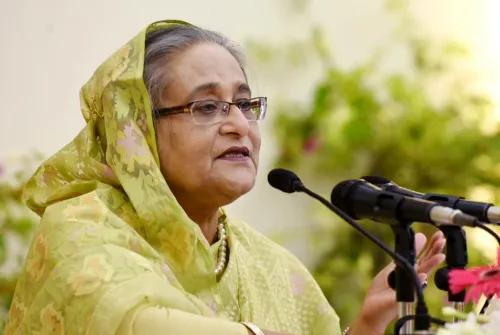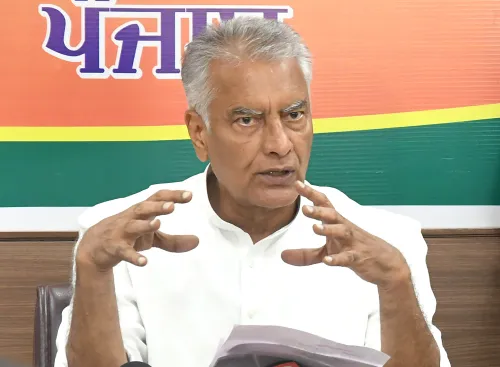Are Meth Cartels and ISI Transforming Kerala into India's Narco Transit Hub?

Synopsis
Key Takeaways
- Kerala's drug crisis is tied to ISI-supported cartels.
- Corruption within law enforcement is a significant issue.
- Meth is a widely trafficked narcotic in the state.
- Geographic factors contribute to Kerala's appeal for drug smuggling.
- International connections expand the drug trade beyond India.
New Delhi, Sep 30 (NationPress) There has been a significant uptick in drug-related incidents in Kerala over the past few years. Security agencies have observed a concerning trend where drug smuggling routes predominantly traverse the southern states.
The recent suspension of four prison officials in Kerala for trafficking narcotics to inmates starkly reveals a systemic rot, contributing to the alarming drug crisis in the state.
Approximately 95 percent of the narcotics market is dominated by the Dawood Ibrahim syndicate, which operates with backing from the ISI, similar to its previous compromises in Punjab. Drugs are initially funneled from Pakistan into Punjab before being dispersed throughout India. However, with security efforts curbing this overt route, the syndicate sought alternatives.
To expand its reach into southern markets, the D-syndicate established modules in Sri Lanka. Here, drugs from Pakistan are first received before being smuggled into India via sea routes. Officials indicate that one of the most sought-after drugs in Kerala is methamphetamine, or meth, which is also in high demand across the country, prompting the syndicate to position Kerala as a key transit point.
Kerala’s long coastline and proximity to international boundaries make it an attractive destination for such activities.
The operations are managed by Haji Salim, a prominent member of the D-Syndicate who oversees all operations in South India. In recent years, Salim has cultivated an extensive network throughout South India, particularly through his activities in Kerala.
Central agencies frequently express concerns regarding corruption within the system, resulting in insufficient monitoring. This lapse facilitates the influx of drugs from Sri Lanka into Kerala, enabling their circulation across the nation.
After arriving in Kerala, meth is smuggled into the broader country via land borders shared with Tamil Nadu and Karnataka.
Recently, the Andhra Pradesh border has also been utilized for cannabis smuggling. Intelligence Bureau officials report that drugs are primarily trafficked into northeastern states from Kerala. Moreover, recent shipments landing in Kerala are now also being funneled through international cartels into Thailand and beyond.
The demand for drugs in Thailand has surged, leading the D-syndicate to recruit numerous Nigerians for this operation. These individuals, who gained experience in Goa, are now spearheading the D-Gang's international dealings.
Officials combating this issue note that these cartels are not engaging in small-scale operations. Their transactions are bold, as evidenced by the recent seizure of meth valued at Rs 30,000 crore in the Andaman and Nicobar Islands. Following this incident, these cartels have adapted, opting to transport drugs in smaller quantities to evade detection. They employ every strategy available to avoid scrutiny.
The ISI heavily relies on this trade, especially after Indian agencies have successfully diminished the fake currency racket. The revenue generated from this illicit trade is funneled into financing terrorism against India, making it crucial for the Pakistani intelligence agency.










